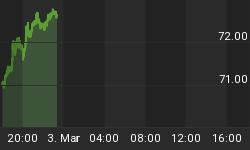As revolution spreads throughout North Africa and the Middle East, many fear that the forces that toppled regimes in Tunisia, Egypt, and possibly Libya, will spread to the Gulf oil states, particularly Saudi Arabia. Many may assume that Saudi Arabia is particularly vulnerable because of its large and restless youth population, and the distrust it has earned among many Arabs as a result of its heavy reliance on U.S. foreign aid and its strong support of American foreign policy. In fact, rebellion has arrived on Saudi Arabia's doorstep in the tiny Gulf state of Bahrain, which so alarmed the Saudis that they dispatched their own troops to quell the disturbances there.
The specter of regime change in Saudi Arabia, which could result in radicalized Islamists taking control of the world's second largest oil producer, is a justifiably harrowing prospect. However, Saudi Arabia's political dynamics are very different from the Middle Eastern states that are in revolt. Understanding these forces should assure us that Saudi Arabia is not likely to be the next domino to fall.
The power base of Saudi Arabia's rulers is distinct from that of the falling dictatorships in North Africa. The House of Saud has had legitimacy on the Arabian Peninsula since the mid-1700s, when the family led a series of uprisings against the Ottoman Empire to establish an independent state. In the ensuing years, many leaders of the family gave their lives for that cause, and they ultimately succeeded in establishing the kingdom we know today. By contrast, most Arab dictators came to power by unseating the previous domestic government, and have relied on repression as their sole claim to power.
Saudi Arabia is immersed in ultra-modern hardware; however, in many ways it is entrenched in a medieval mentality. A country of fundamental contradictions, it is often incomprehensible to the uninitiated. Allow me to provide a rough sketch.
The political strength of the House of Saud is supported by five main pillars:
#1: The safety of large numbers. With its royal family numbering well over 10,000, each employing several loyal retainers, there are few important areas of Saudi life that escape the notice of royal eyes. In effect, the family constitutes a private FBI, with members active in all key areas of life, including government, banks, police, and, of course, the military. By contrast, dictators in other Arab countries tend to have relatively small families or inner circles, which can be easily isolated or liquidated in a revolution.
For the remainder of this article, please click here for the latest edition of Euro Pacific's The Global Investor Newsletter.
















